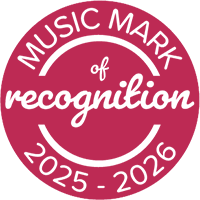Mental Health
Good mental health allows children and young people to develop the resilience to cope with whatever life throws at them and grow into well-rounded, healthy adults, and so it is vital we offer advice and guidance for our young people and their families.
It’s up to you to decide what helps. If it works, keep doing it. If it doesn’t, stop and try something else. These activities are not a substitute for seeing a mental health professional. Sometimes we need outside help and advice. Getting help is good, no one should feel bad about it.
Kooth
Kooth provides online mental health and well being support to young people via any internet accessible device. Kooth provides an opportunity to interact in a supportive way with other young people as well as receive support from a qualified counsellor.
Support Card
We have devised this support card, which contains contact numbers and details for charities that can offer you, or someone you know, support when you/they need it most:
YoungMinds have provided these top tips:
- Keep it in perspective
- Don’t bottle your feelings up
- Use your time well
- Take time for yourself
- Make adjustments to suit you
Mental Health Awareness Week
Mental Health Awareness Week is led by the Mental Health Foundation.
Mental Health Awareness Week happens every year (in May), and it’s the biggest opportunity for the whole of the UK to come together to focus on getting good mental health. The week aims to tackle stigma and help people understand and prioritise theirs and others’ mental health.
Mental Health Foundation
Learn more about Mental Health Awareness Week and this year’s, and previous year’s, themes.
Useful Links
Useful links for young people and parents/carers:
-
Young Minds
A charity that champions the wellbeing and health of young people. Their services range from self help advice, signposting to specialist services, parental help and online advice. They also offer links for young people in crisis
-
Anna Freud
This website offers ideas and advice about how a young person can help themselves. It offers a list of strategies for young people to use to manage their wellbeing through self-care
-
42nd Street
42nd Street is an innovative young people’s mental health charity in Greater Manchester with many years’ experience of providing free and confidential services for people who are experiencing difficulties with their mental health and emotional wellbeing. Their aim is to support young people aged 11-25 years and to promote choice and creativity
-
Emerge
Emerge is a stand-alone CAMHS service, which focuses on the specific needs of 16 to 18-year olds with moderate to severe mental health problems. The team will accept routine and urgent referrals. All accepted urgent referrals will be prioritised and assessed within two working days. 16 to 17-year-old young people presenting in emergency and / or in immediate crisis should attend their local Accident & Emergency Department where Adult Mental Health Services (AMHS) will assess and liaise with Emerge as appropriate
-
Change Grow Live
A charity who are funded by councils and local authorities and are commissioned to provide services to people in need of support for a number of issues including alcohol, drugs, housing, mental wellbeing and prison information. They also support with children’s rights, family issues, justice and health, residential rehab, street outreach and many other sensitive topics
-
ChatHealth
A way for young people to get advice and support around health related issues directly from the School Health Service. It is a safe and secure messaging service, which protects confidentiality and anonymity and is monitored by a team of trained school nurses. Text 07507 330205. They have also launched a Health For Teens website, where young people can gain access to support their health.
-
CAMHS
CAMHS stands for Child and Adolescent Mental Health Services. CAMHS are the NHS services that assess and treat young people with emotional, behavioural or mental health difficulties. CAMHS support covers depression, problems with food, self-harm, abuse, violence or anger, bipolar, schizophrenia and anxiety, to name a few.
Links to some of their Manchester-based services:
Further Guidance
- Parent’s guide to teen depression
- Helping someone with an eating disorder
- Butterfly: support for eating disorders and body image issues
- NHS: advice for parents – eating disorders
Self-harm can cover a range of things that people do to themselves in a deliberate and harmful way. Although cutting is the most common form of self- harm, other methods include head banging, hair pulling, burning and scalding, biting, scratching, stabbing, breaking bones, swallowing objects, self-poisoning and overdosing. By injuring themselves, children and young people are asserting a form of self- control on their life which they feel is otherwise chaotic and meaningless. Self-harm is a way of coping and of channelling frustration and other strong emotions:
- Self-injury Outreach and Support (SIOS)
- Family Lives: self harm
- NHS: where to get help for self-harm














